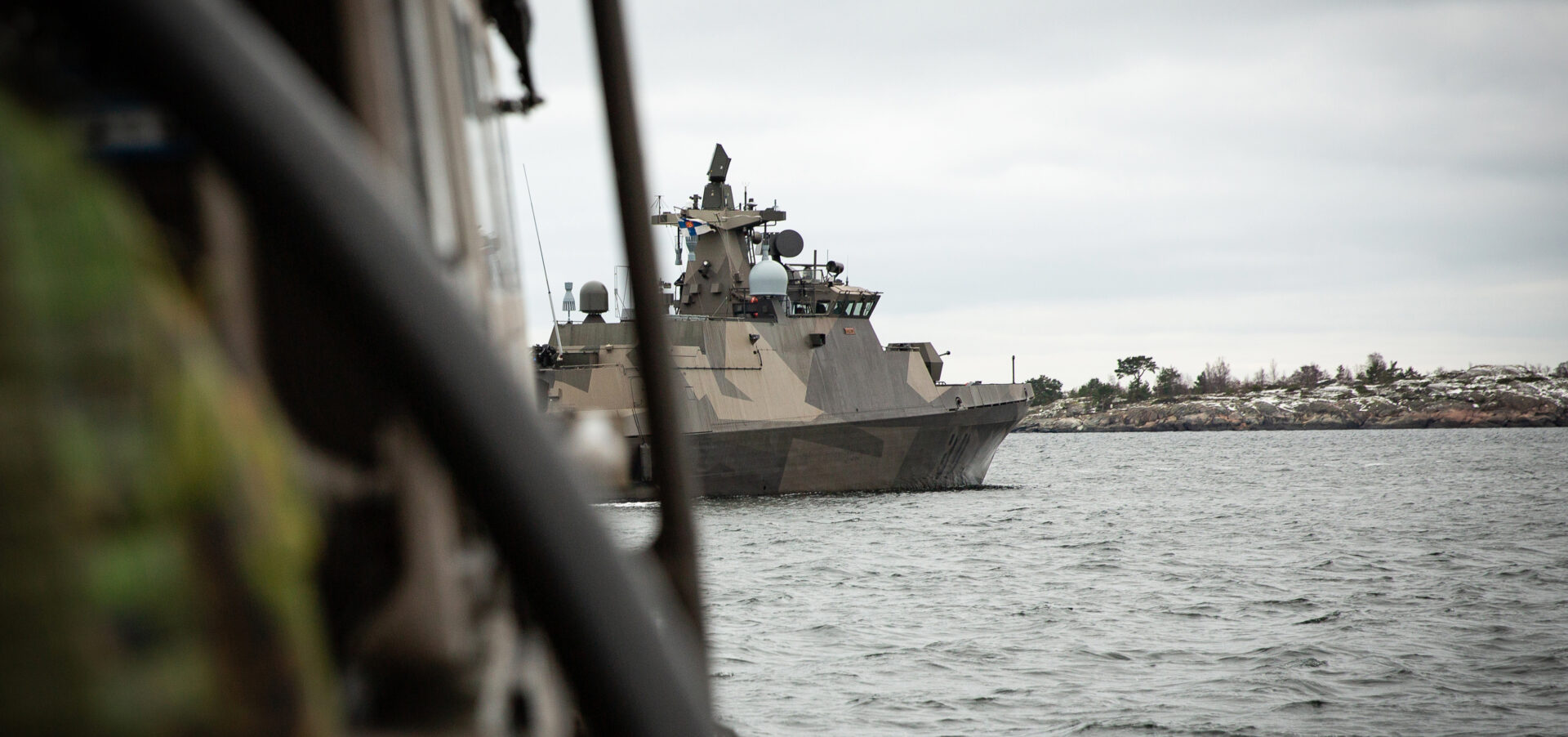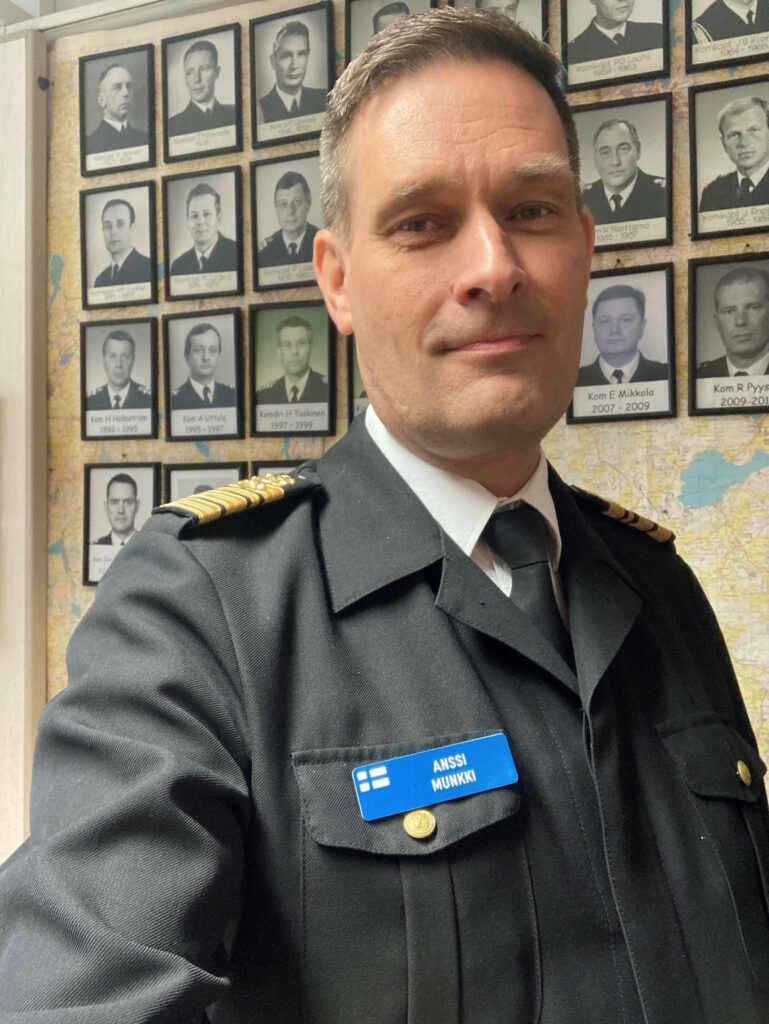
Security situation stable in the Baltic Sea
In times of uncertainty, issues relating to security and international conflicts are often the subject of debate. However, things will remain stable as long as nations share a common interest in merchant shipping.
The Baltic Sea has witnessed a lot: changing eras, wars and times of peace. Both peace and the security of merchant shipping in the Baltic Sea are vital for Finland. We asked two experts for their views on security and security of supply in the Baltic Sea.
“Ensuring stability and security in the Baltic Sea is in everyone’s best interests. The situation is currently stable in spite of increased tensions. NATO’s activities are both changing and improving the situation from a security perspective. We have no precise information about Russia’s future intentions. But security in the Baltic Sea is also important for Russia and its merchant fleet. It’s highly unlikely that anyone will want to take big risks,” says Commander Anssi Munkki, Principal Teacher of Naval Warfare at the Finnish National Defence University.
Controlling the sea is vital
Yet even in peacetime, provocations can occur in the Baltic Sea. Examples include sightings of submarines in territorial waters and the recent damage to gas pipelines.
“There are always opportunities for negative influencing. It’s a question of controlling the sea. Can a nation control an area of water or ‘contest’ its use by another party in different ways? Even with minor resources, it’s unfortunately possible to turn a water area into a vacuum that no one wants to use. It’s one of the most undesirable situations. In principle, Kaliningrad gives Russia this kind of opportunity,” says Munkki.

“The future depends on how important Russia perceives the Baltic Sea to be. Russia may be forced to find alternative maritime routes in the future. The situation may then change. However, even if that did happen, this kind of development would take a long time.”
Even distant conflicts have an impact
Merchant shipping is a global activity in which situations all across the world influence each other. Have national maritime strategies been influenced by, for example, the disturbances around the Red Sea?
“Some countries have without doubt changed their policies already. Again, this is about controlling the sea. Tactics are likewise being employed in the Black Sea for the same reason. Evolving technology is also making a difference. Aerial and waterborne drones are commonplace in the Ukraine War. Subsurface drones are still under development, and subsurface waters are still ‘empty’ in many respects. As subsurface solutions will most likely be developed in the future, it’s advisable to monitor the development of technology and operations in other sea areas, and to consider whether any knock-on effects will be felt in the Baltic Sea in the future. Anti-ship missiles are in any case important from a military standpoint. It’s good for us to keep that in mind, too.”
“The overall situation in the Baltic Sea is both good and stable. Common interests between countries are the best guarantee of security,” says Munkki.
Security of supply is based on functional markets
Finland’s National Emergency Supply Agency (HVK) is an administrative unit that operates under the Ministry of Economic Affairs and Employment. Its task is to plan and implement activities related to ensuring the country’s security of supply.
“Security of supply means the ability to maintain the basic economic activities that are necessary to safeguard people’s livelihoods, keep society functioning, maintain safety and security, and ensure a supply of defence materiel during severe disruptions and exceptional circumstances,” says Jukka Etelävuori, a Senior Preparedness Specialist in the National Emergency Supply Agency’s operative unit.
Etelävuori says that security of supply is based on functional markets and a competitive economy. Seamless cooperation between the authorities, trade and industry, and civil society are crucial for security of supply. It’s a question of the nation’s overall preparedness. In terms of Finland’s merchant shipping, security of supply is largely based on the shipping market.

Specialist at Finland’s National Emergency Supply Agency.
“Ensuring functionality is essential. In other words, ports, vessel traffic services (VTS), pilotage, icebreakers, ice-class vessels and fairway maintenance must all be in perfect working order. And marine insurance must also be available at a sensible price. Basically, we need a functional market in which it is commercially safe and reasonable to sail to and from Finland.”
Collaboration is also a strength in security of supply
Under normal circumstances, foreign or foreign-registered vessels generate a significant proportion of maritime traffic in addition to domestic tonnage. Both foreign and domestic ships will also be required in the event of both regular disruptions and exceptional circumstances. The Finnish fleet will be particularly important during exceptional circumstances and, for example, the Security Strategy for Society states that we should ensure that Finnish shipping companies maintain a domestic fleet.
“Closer cooperation between authorities and business is also essential. When companies have good business continuity management plans, this provides a firm foundation for the authorities to ensure national preparedness for serious disruptions. Maritime transport is mainly handled on a contractual basis – even under exceptional circumstances. A good consensus on contract models for both domestic and foreign tonnage during exceptional circumstances should be reached well in advance. Although the overall situation is quite good, there’s always room for improvement,” says Etelävuori.





